
Bart Bond, National Sales and Marketing
BMS Logistics and RitePack, sister companies, specialize in comprehensive warehousing and contract packaging/manufacturing solutions. From repackaging of product to club store displays and registered film bundling, to custom blending of powders, granulars, and liquids, we deliver tailored services to meet diverse manufacturing needs with precision and efficiency.

Joe Oliaro, VP of Sales and Chief Real Estate Officer
Wagner Logistics is your dedicated and multi-client supply chain, warehousing & logistics partner; offering comprehensive support from quote to go-live. Wagner is known for transparency in pricing, realistic timelines and creative solutions for contract warehousing needs. Wagner’s US operations serve a wide array of manufacturers across industry sectors.

Jason Vangalis, Manager, Economic Development
Amazon is the world's largest online retailer and a cloud service provider that offers a wide range of products and services.

Nick Nelson, President & CEO
CTW is a full-service logistics company with more than 155,000 square feet of rail-served warehouse space in Kansas City, MO. CTW has deep experience in food storage, dry storage, transload, intermodal, cross-dock, and nationwide freight transport.

Jason Lanter, Senior Director Operations
New-age technologies that play a role in supply chain transformation range from automation, robotics, and sensors to self-driving technologies, advanced parcel tracking, data analytics, and machine learning and reasoning. GEODIS harnesses these technologies to support intelligent decision-making and a more sustainable logistics flow.

Bryan Martsching, Director of Business Development
Laufer Group International Ltd. provides mid-market shippers the elusive combination of incredible customer intimacy and a powerful technology toolkit – designed to work together to help you compete and win. Laufer helps identify your challenges and opportunities, analyze and plan your strategy, then tailor technology and practical solutions designed to improve your business.

Dee Pack, CEO
Recovery Management Corporation manages undeliverable and excess goods for major carriers, shippers and distributors. Our 500 employees and new 600,000 square foot facility enable us to turn problem freight into profit, and provide exceptional service for our clients.

Jim Ritchie, President & CEO
RedStone Logistics is a unique third-party logistics provider specializing in improving supply chain efficiencies. Founded by logistics industry veterans with over 100 years of combined experience, RedStone has expertise in improving supply chain efficiencies for organizations of all sizes and industries.

Adam Hill, President & Chief Operating Officer
Expect more from us. Because we expect more from ourselves. For 40 years, Scarbrough Global has grown its global logistics operation one client and one employee at a time. Whether you need freight brought from China to Chicago, shipments moved within the U.S., product warehoused, fulfillment services or consulting to help save money and make your supply chain more efficient, we can handle it.

Joe Caldwell, CEO
With a portfolio of professional solutions - from engineering, landscape architecture, GIS and information management, to field services and sustainable development, the team at Bartlett & West’s five Kansas City region offices provide comprehensive professional solutions to government agencies, municipalities, private industry and individual clients.

Jason Robertson, Vice President, Food + Beverage
CRB is a leading global provider of sustainable engineering, architecture, construction, and consulting solutions to the food and beverage and life sciences industries. Across 21 offices in North America and Europe, the company's nearly 1,800 employees provide world-class, technically preeminent solutions that drive success and positive change for clients and communities.
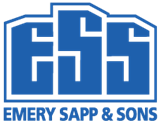
Eric Mann, Business Development Manager
Founded in 1972, Emery Sapp & Sons (ESS) is a 100% employee-owned heavy civil construction company, specializing in excavation, grading, underground utilities, bridge construction, asphalt and concrete paving, and pavement preservation.

Sterling Cramer, Vice President
GBA is a national civil engineering and AEC solutions firm, delivering integrated design, construction, and site development services for complex projects. With over 50 years of experience and 15 offices across the U.S., we leverage innovative, data-driven technology to provide clients with coordinated, end-to-end project solutions.

Cheryl Ball, Senior Freight and Maritime Planner
At GFT, a privately held AEC firm comprised of GFT Infrastructure, Inc. (formerly Gannett Fleming, Inc.), TranSystems Corporation, and their affiliates, we innovate where transportation, water, power, and buildings converge. We call this the Infrastructure of Life. GFT delivers tailored solutions for some of the most complex AEC industry challenges.

Darren Hennen, Vice President
Olsson excels in delivering timely due diligence, entitlement, and design of: sites, public infrastructure, private infrastructure, and mission critical processes. Our robust firm is comprised of capable, nimble, solution-minded employee-owners, who understand the importance of frequent and responsive communication.
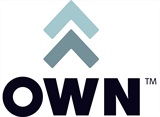
Bob Morton, Director of Business Development
OWN, Inc. (formerly Anderson Engineering) is an engineering firm that unleashes the power of true, 100% employee ownership. OWN's Kansas City team proudly serves the private development and public infrastructure markets with core offerings of civil engineering, structural engineering, land surveying and field services.
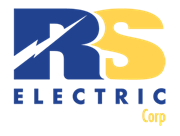
Reid Schultz, President
R/S Electric is a long-standing family-owned business, with deep roots in Kansas City and the surrounding area. R/S is a full-service electrical contractor providing reliable, quality electrical and technology installation services including power, lighting, automation & controls, low voltage and technology systems (such as security, access control and structured cabling) for commercial and industrial facilities, manufacturing, healthcare, pharmaceutical, water treatment, and higher education campuses.

Dave Flessner, Director of Business Development
Alpha-Omega Geotech is a seasoned geotechnical engineering group with decades of forensic subsurface experience in Kansas and Missouri. The company operates one of the oldest and most acclaimed soil and concrete testing laboratories in the region. Alpha-Omega Geotech’s historical subsurface knowledge allows the company to jump-start projects by providing insights needed to make critical decisions with fewer risks.

Mark Johnson, Director of Business Development
ARCO National Construction - Kansas City is a leading construction company that provides clients with best-in-class design-build solutions regardless of project complexity or scale. Our professional, qualified team of engineers, project managers, superintendents, and architects are capable of designing and building the most demanding projects locally or nationwide.

Danny Wastler, Director of Business Development
Brinkmann Constructors is a national general contractor and creative leader in many market segments, including industrial, senior living, multifamily, and student housing. We share a passion for finding innovative opportunities to save our clients time and money throughout the construction process.

Tyler Harrelson, Managing Director
Founded in 2010, Centric has grown into one of the most recognized general contractors in Kansas City, and we’re active in our business, civic, and philanthropic communities. We serve a wide range of markets, including workplace, retail, healthcare, institutional, industrial, hospitality, multi-family, and single-family residential. We’re driven to make Kansas City a better place to live, work, and play by building our city and its stories from the ground up.

Joe Kelley, Project Development Manager
With over six decades of experience, Kadean delivers construction solutions nationwide spanning a variety of industries including industrial, healthcare, and commercial. With offices in St. Louis, Kansas City, and Philadelphia, we are strategically positioned to support clients across the country. Our commitment to simplifying the construction process is driven by our extensive industry expertise, strong trade partner relationships, and dedicated project teams.

Rob Cunningham, Vice President
KBS Constructors is a full-service general contractor, emphasizing core values of Integrity, Caring, Excellence, and Teamwork. KBS Constructors trains their craftsmen through a state-certified apprenticeship program, and self-performs work to add value to client projects. Whether it's a new ground-up facility, historic renovation, remodel, or addition, KBS Constructors brings 'Knowledge Beyond Structures' to ensure projects are done right the first time. Their services include Preconstruction, Design/Build, and Construction Manager at Risk options, making KBS a comprehensive choice for all your commercial / industrial construction needs.

Jim Rogers, President
Martin Mechanical has deep ties and experience in the Kansas City Industrial, Manufacturing, and Process industry. We set ourselves apart with our focus on connecting with local businesses to provide complete Mechanical and Plumbing services for owners from initial engagement in plant and system design concepts to installation and 24-hour service. A long history and knowledge base in the construction industry has allowed Martin Mechanical to continue to develop relationships as the companies and industry evolves.

Justin Hamilton, Vice President, National Manufacturing
McCownGordon Construction delivers turnkey design and construction solutions for the manufacturing and industrial markets. We prioritize efficiency, maximizing your ROI and getting you to market faster. From site selection to startup, we streamline operations, ensuring success at every step.

Jeff Richardson, Business Development
Founded in 1914, Musselman & Hall Contractors provides construction services in the commercial, industrial and municipal sectors for its customers. With a full complement of a skilled workforce we self-perform concrete, asphalt, railroad and civil construction.

Mike Lally, Senior Vice President, Community Engagement
Professional Engineering Consultants (PEC) is a full-service engineering firm providing holistic and sustainable solutions to both public and private sectors across the United States and beyond. With more than 400 employees in eight offices, we are a regionally-based firm with a national reach.

Brett Hausman, President
Al J. Mueller Construction Company is a premier design-build general contractor with a strong emphasis in the construction of significant commercial projects. Since 1974, the firm has provided unparalleled construction services to the icon organizations of Northwest Missouri and Eastern Kansas.

Eric Buer, Real Estate Development Director
Burns & McDonnell designs and builds the tangible and intangible, everything you see (and don’t see) that helps our cities thrive. We’ve worked relentlessly to make our clients and our communities successful since 1898, because we know safe, essential infrastructure is the foundation of a flourishing society.

Greg Finkle, President
FINKLE + WILLIAMS Architecture was founded in 1998 and is located in Lenexa, Kansas. We are an employee-owned group of architects and designers from various backgrounds and mindsets. Our extensive portfolio includes corporate, industrial, entertainment, mixed-use, military and master planning work for public, private and municipal clients throughout the United States and abroad.

Courtney Tripp, Sr. Manager Sustainability & Strategy
Grundfos is committed to pioneering solutions to solve the world’s water and climate challenges. A leading pump and water solutions company, Grundfos provides energy and water-efficient solutions for an array of applications for water utilities, industries, and buildings.

Jacqueline Foy, Principal
HDR, a 100% employee-owned professional services firm, provides expertise in architecture, engineering, environmental and construction services. Our multidisciplinary teams also specialize in transportation, rail, streetcar, water, wastewater, healthcare, sports and airports. Our success in built and natural environments continues as we collaborate to solve our clients’ and communities’ most complex challenges.

Jesse Dull, President
JDG Construction builds in many different industries, including warehouse, industrial, private K-12, country clubs, office, restaurant and retail. Our commitment to value, integrity, and quality is at the core of everything we do. We believe in building not just structures, but also relationships with the people we serve.

Jeff Gattis, President Midwest Region
Nabholz is a leading construction-related service provider. In addition to general contracting, we offer professional services which include construction management, design-build, preconstruction services, millwork, equipment rental, excavation, 24/7/365 emergency service, steel erection, remodeling, tenant finish-out, concrete construction, millwright, rigging, heavy-haul trucking, and a full range of environmental services.

Brian Jones, Project Executive
PARIC Corporation is a diversified construction firm with a focus on serving industrial clients within the manufacturing, distribution, mission critical, and food & beverage markets. Our reputation of exceeding client expectations has made us a trusted partner providing turnkey construction services.
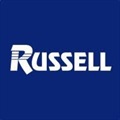
Ryan Schroeder, President
Russell is a growing Kansas City construction company. With decades of experience, our local KC Team is focused on preconstruction and general contracting services within the Industrial and Tenant Improvement sectors. For us, this isn’t just a job. It’s about fulfilling our mission – Building great people, relationships, and communities!

Brian Johanning, Vice President of Business Development
Superior Bowen is a heavy civil construction company with a 75-year legacy. We specialize in services like asphalt paving and production, asphalt additives, materials testing and analysis, site preparation, development planning and earth work.
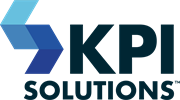
Jim Kuecker, Chief Commercial Officer
KPI Solutions optimizes warehousing and distribution by providing customized end-to-end services that include supply chain consulting, network strategy, engineered facility design, automated material handling systems integration, robotics, intelligent warehouse software, and lifetime services.

Eric McDonald, Chief Customer Officer
Storage Solutions, a Jungheinrich Company, is an intralogistics solutions provider made up of automation design experts who collaborate with and support distribution and fulfillment operations across North America and worldwide.

Greg Topjon, Director of Sales
Wiese is dedicated to keeping your business moving forward, no matter what it takes. Customers benefit from the most cost-effective products and services regardless of their industry or business size. With the largest inventory of material handling equipment in the country, Wiese provides access to a wide range of resources to meet your individual needs. Wiese will help you solve your most complex challenges no matter what it may take.

Karley Felz, Senior Account Executive
Systems in Motion is a turnkey systems integrator for material handling solutions including storage innovations, software integration, picking strategies, and conveyor systems. Our group of companies optimize efficiency and productivity with automated systems and supply chain solutions.

Chris Siebenmorgen, Regional Manager
Headquartered in Kansas City, Siggins is a Warehouse Design/Build material-handling systems integrator with 75 years’ experience specializing in complete Distribution Center design and implementation within the four walls. A strategic analysis of your receiving, storage, picking and shipping operation leads our Design/Build/Retrofit and implementation teams to recommend alternative solutions to properly apply hardware and software to meet your goals, improve efficiency and increase storage capacity.
 Derrick Hill, Sales Manager
Derrick Hill, Sales Manager
Productive Tool Products collaborates closely with top-tier manufacturers to deliver cutting-edge solutions tailored to their specific needs. Through ongoing collaboration, we continuously refine and enhance our offering to stay at the forefront of technological advancements, empowering our partners to maintain their competitive edge in their respective markets.

Bryan Johnson, Executive Director
New Century AirCenter is a multimodal national airport offering aviation and non-aviation development opportunities strategically located in southwest Kansas City. We are an aerospace and technology focused community of partners and industry leaders.

Tim Cowden, President & CEO
The Kansas City Area Development Council is an economic development organization serving the 18-county, two-state Kansas City area. We work closely with our state, county, community and corporate business partners to attract new businesses and talent to our region.

Michael Moriarty, Division Director of Planning and Development
Whether by highway, rail or air, the Kansas Department of Transportation offers excellent transportation and marketing advantages for your business. Because of the state’s central location and outstanding multimodal infrastructure, KDOT has helped make it easier and cheaper to ship to and from Kansas. KDOT’s current transportation funding Program, the Eisenhower Legacy Transportation Program addresses highways, bridges, public transit, aviation, short-line rail and bike/pedestrian needs across Kansas.

Chase Johnson, Senior Development Manager
Port KC serves as a public redevelopment organization for the purpose of generating new capital investment for both private venture and public infrastructure in order to produce new job opportunities, and increased tax base, and for the overall economic vitality of Kansas City.

Christa Atchison, Senior Economic Development Manager
Evergy delivers clean, safe, reliable energy to 1.7 million customers in Kansas and Missouri. We call the communities we serve home and are invested in their future.

Pete Fullerton, Deputy Director of Aviation – Commercial Properties & Development
Kansas City Aviation Department is the proud steward of Kansas City’s air travel, providing exceptional airport services to travelers and aircraft operators alike through two unique airports, MCI and MKC. Kansas City International Airport (MCI) provides a safe and modern experience rooted in Kansas City hospitality. We help connect you to the people and places that matter most in life. As a full-service gateway for specialty travelers, Kansas City Wheeler Downtown Airport (MKC) provides top-level amenities and aviation services at a key point along the journey.

Ronald Achelpohl, Director of Transportation
The Mid-America Regional Council (MARC) provides a forum for connections essential to creative problem solving and opportunity sharing. MARC is a nonprofit association of city and county governments and the metropolitan planning organization for the bistate Kansas City region. Governed by a board of local elected officials, MARC serves nine counties and 119 cities. Through MARC, the region works together to advance social, economic and environmental progress.

Mike Ekey, Assistant City Manager
The City of Belton is at the crossroads to everywhere. Located just south of the Heart of Kansas City, our logistics/industrial business community has unprecedented access to rail and interstate highways to quickly move products or materials anywhere in North America. Our mission is to build on our thriving community by partnering with our businesses, regardless of size, to provide the tools and support that make us all successful.

Steve Shute, Council Vice President
Gardner, Kansas, is located in the southwest corner of Johnson County, one of the most flourishing counties in the nation. Gardner, while known as a small town, has become one of the fastest growing cities in Kansas and offers affordable living and tremendous amenities.

Brandon Smith, Economic and Business Development Manager
The City of Liberty is rich in history and offers an exceptional quality of life for its residents. Liberty is formed by strong neighborhoods and maintains an active historic downtown square. Residents enjoy quality community services and amenities, including an outstanding parks system and a well maintained infrastructure network.

Jordan Lea, Economic Development Director
Raymore's Economic Development Department prioritizes business retention, expansion, and attraction as its core objectives. By utilizing a comprehensive array of services and resources, our team is committed to empowering your business's success and maintaining Raymore as a place for businesses to thrive and flourish.

Jim Erickson, Director of Strategic Initiatives
EDCKC administers and implements Kansas City Missouri’s economic development strategy, and focuses on: business retention and attraction, real estate development and entrepreneurship. Our mission is to shape a vibrant, thriving future for Kansas City and its residents.

James Oltman, President
ElevateEdgerton! is the genesis of a proud and spirited community ideally positioned to welcome residential, retail, commercial and industrial growth. With the components necessary to grow Edgerton as a total community already in place, ElevateEdgerton! is eager to attract and enable development befitting of Midwestern values and with mutual expectations for long-term viability.

Paul Bean, Executive Director
With one of the most affordable business climates in the region, dedication towards Workforce Development and easy access to global connectivity, Franklin County offers all the ingredients for sustained success no matter the industry.

Tiffany Melvin, President
NASCO is the leading organization focused on the competitiveness of the North American supply chain and closing the skilled workforce gap. We are the only tri-national network of the North American governments, business, and educational institutions, driven by a common interest in collaboration along commercial corridors and trade networks.

Tim McKee, CEO
The Olathe Chamber is a member-based organization that’s the voice of business that advances the economic well-being and quality of life in Olathe. The Chamber also houses the Olathe Economic Development Council for business retention and recruitment and the Olathe Convention & Visitors Bureau to promote Olathe as a destination.
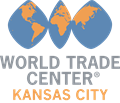
Melissa Miller, Director
World Trade Center – Kansas City facilitates international trade in the Greater Kansas City region by connecting, educating, and providing services to the regional business community necessary to compete in the global marketplace.
 Chris Gutierrez, President
Chris Gutierrez, President
The Greater Kansas City Foreign Trade Zone, Inc. is the regional grantee of the U.S. FTZ program that sponsors both Zone 15, covering 23 counties in western Missouri, and Zone 17, covering 9 counties eastern Kansas. The business-friendly environment and large coverage area enables a streamlined FTZ approval process for manufacturing and distribution operations in the KC market.

Bobby Vickers, Vice President
IMA Financial Group is an independent broker defining the future of insurance through comprehensive and consultative risk and wealth management services. A majority employee-owned and managed company, its 2,300-plus associates in offices across the country are empowered by a shared mission to manage risk, protect assets and make a difference.
 Dan Schulte, Chief Operating Officer
Dan Schulte, Chief Operating Officer
Aspen Funds is an Inc. 5000 fund manager, managing over $500 million in assets across multiple asset classes with a current emphasis on industrial and energy. Aspen provides alternative investment funds for high-net worth individuals and institutional investors.

First Interstate is a community bank delivering best-in-class banking and Wealth Management services to the Kansas City region and beyond. First Interstate is dedicated to helping communities reach their greatest potential—answering the needs of residents and businesses with practical financial solutions while supporting communities through business development and philanthropy.

Mark Stauffer, Regional President
Sunflower Bank delivers large bank solutions with the relationship focus of a community bank. With $7.7 billion in assets as of September 30, 2023, Sunflower Bank provides a full range of services to meet business, personal and wealth management financial objectives.
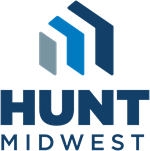
Mike Bell, Senior Vice President
Hunt Midwest, one of the pillars of the Lamar Hunt Family’s holdings, is a Kansas City-based, privately held real estate development company with six decades of expertise in industrial, self-storage, residential, multifamily, and senior living communities, with more than $2 billion of developed projects in multiple geographic markets. Its industrial offerings are varied; from available land, state-of-the-art new construction, climate-controlled underground capacity and everything in between. Hunt Midwest leverages its reputation, resources, and relationships to create successful real estate solutions.

Brandon Brensing, Vice President, Real Estate Development
Ryan Companies, a national leader in commercial real estate, adopts a holistic approach to every project, focusing first on the “why” behind a client’s needs to achieve the best outcome. Ryan Companies plans, designs, builds and owns buildings,and possesses a profound understanding of the intricate balance between beauty, function and long-term value.

Grant Harrison, Executive Vice President
VanTrust Real Estate is a full-service real estate development company with extensive experience developing office, industrial, multifamily, mixed-use, and science + technology projects. Offering a full spectrum of real estate services, VanTrust’s expertise includes acquisition, development, asset enhancement, design/construction oversight, and consultation. VanTrust has a regional focus, national scope and adapts its role to achieve each project’s goals and objectives.

Block, CPM, Principal
Block Real Estate Services, is a full-service commercial real estate company managing over 45 million square feet of retail, office, and industrial properties. BRES’s portfolio of services continues its role as the most comprehensive commercial real estate firm in Kansas City, providing brokerage services, tenant representation, investment services, asset and property management, economic incentives consultation, financial services, construction and development services, and the Block Funds.

Mike Mitchelson, Executive Vice President
CBRE is the global leader in commercial real estate services and investment, providing local and regional clients the full spectrum of services and insights offered by its global platform. Serving both investors and occupiers throughout the region for more than 30 years, CBRE Kansas City delivers the most comprehensive local service offering with the broadest geographic reach.

John Stafford, Senior Vice President
Colliers is a leading diversified professional services and investment management company providing expert advice to real estate occupiers, owners and investors. Colliers’ full-service commercial real estate firm employees and real estate advisors offer services such as agency brokerage, development, construction, tenant representation, investment brokerage, accounting, receivership, asset management, property management, project management, research and marketing across a range of property types.

Jack Goldsborough, Director
Cushman & Wakefield is a full service commercial real estate firm with 52,000 employees in over 400 offices. Cushman & Wakefield is a Kansas City market leader for industrial real estate with a team of six experts with a combined 100 years’ experience.

Andrew Fischer, Partner
FWI is a full-service industrial real estate brokerage firm specializing in buying, selling or leasing industrial and outdoor storage properties throughout the country.

Devin Schuster, Founding Partner
Flint Development is a commercial real estate development firm based in Kansas City, specializing in industrial, multi-family and senior living development. Flint has over 75 years of combined experience and a proven track record of projects in over 35 markets throughout the country.

Gregory Scovitch, Senior Vice President, Development
Hillwood is a leading, privately-held real estate development firm with a proven history of delivering long-term results for customers, partners and investors in the U.S. and internationally. In Kansas City, Hillwood is partnering with the Kansas Speedway Corporation to develop Speedway Commerce Center, a multi-phase business park offering easy access to rail lines, interstate infrastructure and flexibility for prospective tenants with a variety of size options available to suit.
 Paul Licausi, President
Paul Licausi, President
LS Commercial Real Estate is a full service Commercial Real Estate Brokerage, Management and Development Company based in Overland Park, Kansas. LSCR provides professional real estate services to a wide range of International, National and Regional Companies.

Brent Peterson, Partner
Founded in 1987 and an affiliate of NAI Global, the largest worldwide network of owner-operated, market-leading commercial real estate providers, NAI Heartland is recognized as a respected and consistently successful producer in the Kansas City commercial real estate marketplace.

Mark Long, President and CEO
Newmark Zimmer, Newmark Zimmer, a full-service commercial real estate company headquartered in Kansas City, provides a range of services including sales and leasing, property and facilities management, global corporate services, owner’s representative services for public and private development projects, and public sector consulting, as well as various real estate consulting services. Newmark Zimmer has been responsible for some of the most iconic developments in the Midwest region including the NNSA National Security Campus, Sprint World Headquarters Campus and the Village West tourism, entertainment and retail district.

Daren Aldag, Development Manager
Panattoni Development Company, Inc. is a privately held commercial real estate development company specializing in industrial, office and build-to-suit projects. As a privately held company, we are in a unique position to leverage the most promising international markets and most effectively serve our clients on a local level.

Mark Smid, Vice President
Platform Ventures is a holding company, which through certain subsidiaries, invests in real estate assets, real estate operating companies, and real estate technologies. Whether investing in real estate assets or operating companies, the Platform Ventures team knows how to uncover value and deliver returns.

Cam Duff, Director of Development
Scannell Properties is a privately owned real estate development and investment company, focusing on build-to-suit and speculative development projects throughout the U.S., Canada and Europe. Scannell Properties offers experienced leadership, a history of successful commercial development projects, and a hard-won reputation for tuning in to the particular needs of our customers. The company serves corporate and institutional clients with the need for designing, building and leasing new facilities in one or multiple markets.

Mike Stromberg, Director, Real Estate Development
The Opus Group® is a family of commercial real estate development, construction and design companies headquartered in Minneapolis with offices and projects across the country. Through our unrivaled, one-team, comprehensive approach to development, design and construction, we have delivered millions of square feet of meaningful spaces with enduring value.

Matt Roth, President
BlueScope Properties Group provides commercial real estate development throughout North America, and with our connection to BlueScope Buildings’ Builder Network of over 2,000 contractors, we can build teams with the right local knowledge and expertise. The builders we partner with understand local building codes and provide the right products and services for your facility needs.

Phil Algrim, Executive Vice President, National Director
JLL helps buy, build, occupy and invest in a variety of assets including industrial, commercial, retail, residential and hotel real estate. From tech startups to global firms, our clients span industries including banking, energy, healthcare, law, life sciences, manufacturing, and technology.

Matthew Severns, Principal, Director of Industrial Brokerage
At Kessinger Hunter, our competitive edge is our people and their deep-seated commitment to fully understanding each client’s needs and objectives. This commitment has allowed us to maintain our position among Greater Kansas City’s leading commercial real estate firms. But our capabilities also do not stop at Greater Kansas City’s borders. We serve clients nationwide.

Mark Roseman, Regional Manager
The Meritex Company is a privately held, family-owned real estate investment and management firm focused on acquiring, developing and managing infill industrial properties in nine major markets in the U.S. Meritex owns and manages approximately 11.5 million square feet of institutional grade, multi-tenant space made up of more than 90 properties across nine markets.

Joe LaMothe, President
Since 1931 Mid-West Terminal Warehouse Company and its subsidiaries have provided top quality services through our numerous industrial real estate developments, warehousing, and bulk terminal operations. Mid-West Terminal is responsible for developing, owning, and managing over 2.7 million square feet of industrial real estate in the Kansas City area.

Josh Udelhofen, Senior Vice President
Since 1948, TCC has provided best-in-class development services for real estate investors, owners, and occupiers with a holistic array of services and solutions for nearly every product type. We develop iconic buildings on the most desirable sites in top-tier markets across the United States and Europe.

Greg Sulentic, Franchise Developer
Express Employment Professionals has an unmatched community presence, with 7 franchised staffing offices located in the Kansas City region. This complete market coverage provides outstanding recruiting reach and servicing capability, allowing clients and partners optimum access to the workforce in every part of the Metro.

Mitchell Packard, Senior Account Manager
Our People Are Everything™. For more than 40 years, Aerotek® Inc. has built a reputation for providing the highest-quality staffing and workforce management solutions. With over 250 North American offices, we partner with more than 13,000 clients and 200,000 contract employees every year.
 Nathan Walts, Executive General Manager
Nathan Walts, Executive General Manager
WorkForge offers a comprehensive learning and development solution from hire to retire. Our robust content library and custom content capabilities help learners focus on more than just compliance, prioritizing competency development to address critical issues like an aging workforce, skills shortages, and technological advancements.

Cary Hutchings, Director, Corporate Real Estate
Burlington Northern Santa Fe was formed by the merger of four primary railroads in March 1970 and maintains a strong presence in the Kansas City region. BNSF currently operates one of the largest railroad networks in North America with 32,500 route miles covering 28 states and two Canadian Provinces. BNSF is among the world’s top transporters of intermodal traffic hauling over 3.5 million intermodal containers per year.

Coby W Bullard, Senior Vice President, Marketing and Sales
Canadian Pacific Kansas City is the combination of two historic railways – Canadian Pacific (CP) and Kansas City Southern (KCS). CPKC has created the first and only transnational rail network in North America. Drawing on its strong foundations and heritage, CPKC provides innovative transportation services across its 20,000-mile network to move goods to key markets across Canada, the U.S. and Mexico in a safe and environmentally responsible manner.
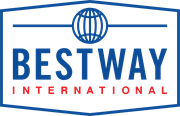 Chance Pope, Senior Director, International Business Development
Chance Pope, Senior Director, International Business Development
Founded in 1988, Bestway International, Inc., provides full-service transportation and customs brokerage solutions to thousands of clients worldwide. We’ve built our business on decades of experience and expertise in the complex aspects of domestic and international shipments. These include, but are not limited to, temperature-controlled shipments, dangerous goods, carnets, letter-of-credit and other documentary collections, and more. We are proud to be considered a business partner in addition to a value service provider.
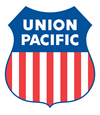
Benjamin Jones, Senior Director - Public Affairs
Union Pacific Corporation is one of America's leading transportation companies. Its principal operating company, Union Pacific Railroad, is North America's premier railroad franchise, covering 23 states across the western two-thirds of the United States.
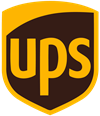
Andy Kyser, Director of Product Innovation
Operating in more than 220 countries and territories, UPS and its more than 500,000 UPSers around the globe are a transportation and logistics leader, offering innovative solutions to customers to deliver what matters.. UPS understands and appreciates its responsibility to help build safer, stronger and more resilient communities founded on justice and economic opportunity for all, supported by a healthy, sustainable global environment.
 Curtis Frazier, SVP Real Estate & Industrial Development
Curtis Frazier, SVP Real Estate & Industrial Development
Watco is a single-source transportation and supply chain services company with locations throughout North America and Australia. We own and operate a diverse and unmatched network of short line railroads, terminals, ports, and repair terminals.

Amanda Davenport, Vice President
For over 30 years, DBA has specialized in transporting unique and difficult shipments anywhere in the world. Our seasoned experience has evolved us into a proven leader in the efficient and timely movement of domestic and international cargo. Today, we continue to provide custom-tailored services that give our customers full visibility into their shipping and logistics transactions.

Cathleen Flournoy, Senior Industrial Development Manager
Norfolk Southern serves a majority of the country’s population and manufacturing base, with connections to every major container port on the Atlantic coast as well as the Gulf of Mexico and Great Lakes. Our railroaders deliver more than 7 million carloads each year, from agriculture to consumer goods, and we are the largest rail shipper of auto products and metals in North America.

Scott Keller, KC Market Sales Representative
TSL provides a global supply chain solution via our network of offices. We are an integrated, value-added, full-service transportation organization that expertly facilitates shipments worldwide as an NVOCC and freight forwarder with customs brokerage and international documentation services. TSL Companies moves our customers’ shipments worldwide from origin to destination and seamlessly handles all requirements in between.